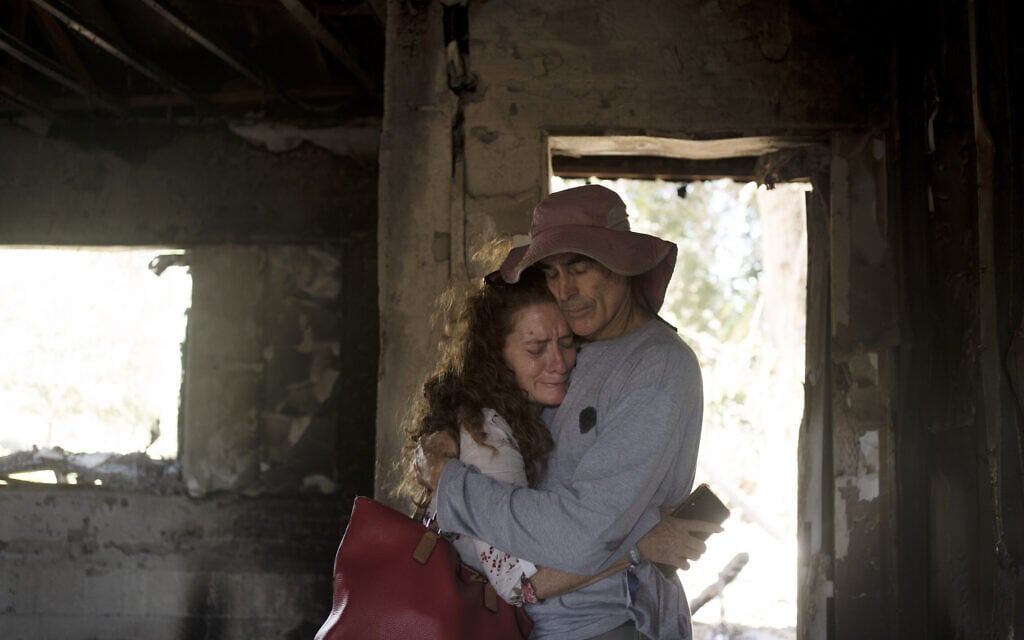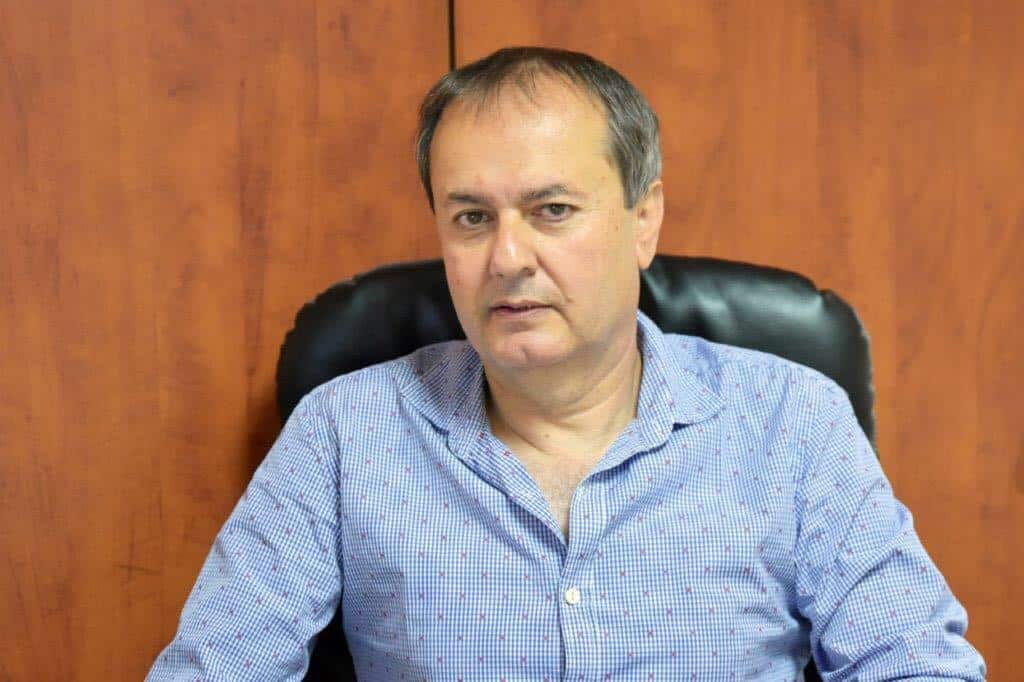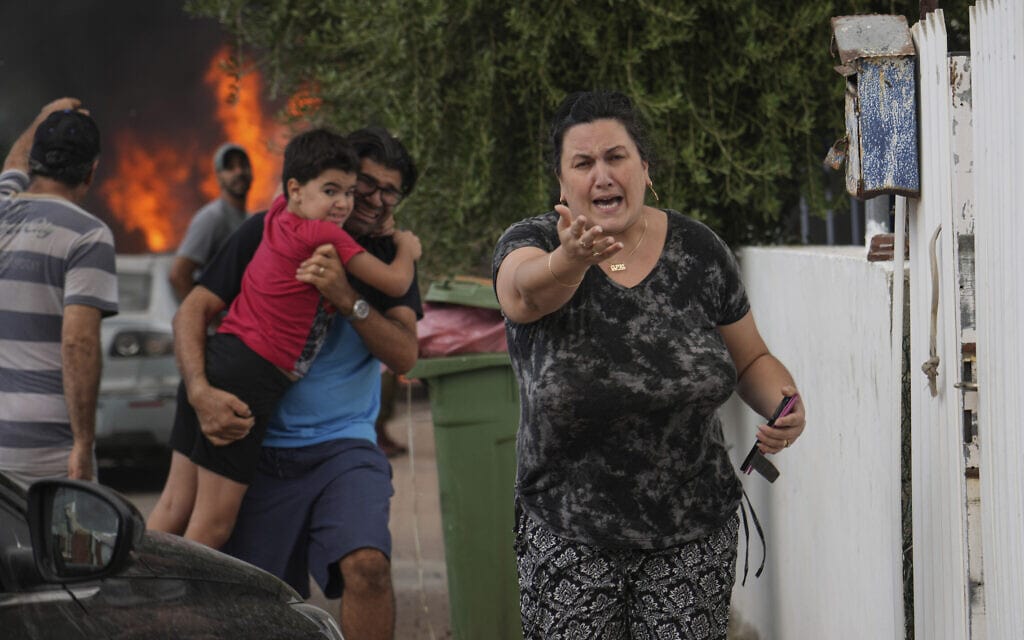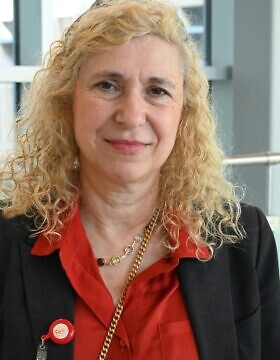The massacre causes emotional distress to victims of previous wars and attacks
By Tani Goldstein
The war raises mental difficulties, suffering and difficulty functioning among many – Victims who were directly injured - Those suffering from previous injuries – Lot of patients turn to the emergency departments and mental health clinics – Caregivers also need assistance - Caregivers prefer to assist patients through phone calls than medication and treat them in the community rather than admitting them to the hospital - Nevertheless, therapists are convinced: "Most mentally ill patients will recover over time".

D. (not her real name), a 30-year-old woman from central Israel, is a sexual assault victim. As a child, she was a victim of incest and later was raped more than once after growing up. Later she underwent mental health treatment, moved away from the environment in which she was injured and partially rehabilitated her life.
After the massacre in the surrounding area of Gaza – and the harsh testimonies published about Hamas terrorists who raped women – D. felt a sense of severe anxiety, which brought her back to the previous traumatic events. She stopped functioning, stopped leaving the house, could not communicate with people around her, had suicidal thoughts, and entered psychiatric hospitalization of her own choice.
"The rapes in the massacre in the surrounding area of Gaza revived her trauma, reintroduced her to human evil, reawakened her deep sense of distrust," says one of D.'s caregivers, Ronit (not her real name, in order to protect the victim).".
According to Ronit: "For many women who had been sexually assaulted in the past, who were exposed to information about the crimes of sexual assault in the massacre, it triggered a post-traumatic reaction. This is in parallel with post-traumatic reactions among many civilians who lost loved ones or were present in the past attacks, and among many soldiers who participated in wars, operations and incidents."
According to Dr. Zvi Fishel, Chairman of the National Council for Mental Health and outgoing Chairman of the Psychiatric Association: "Mass trauma events, like the one we are in, occur in two waves.

The first wave is the immediate trauma of those who were themselves in mortal danger, present in massacres and battles, and lost relatives in these events.
"The second wave is the post-traumatic reaction, which is related to the mental structure of the victims.
Not all the victims will develop post-traumatic reaction. Some of the victims who were involved directly and those who survived the massacre will not develop a post-traumatic reaction. They will never forget what they went through, but they will come back to themselves in the future. There are those who will develop difficulties later on, but they will recover over time, and there are those who suffered an injury that will stay with them and will always need treatment.
"Some of the victims in the second wave are not the direct victims, but the people in their second and third circles of acquaintances, and those with whom they have no connection. The media coverage of the massacre, the war, the extensive mobilization of reservists and the rocket fire give rise to post-traumatic syndromes and other mental health difficulties.
"This is the biggest wave, a tidal wave, that we are entering now, and we are only at the beginning of it, because post-trauma is a long event that expands over time. Some people who have experienced PTSD that arises now have been injured or have been present in attacks or combats in the past, as civilians or soldiers. In addition, the reports of rapes in the massacre bring back the memory of similar events to those women who have experienced sexual assaults.
The number of people for whom the incidents may trigger emotional harm is very large. According to studies, about a third of women in Israel and around the world have experienced physical sexual assault.
In Israel, more than a thousand "small" attacks take place every year, all of which result in Israeli casualties in one way or another. Hundreds of thousands of Israelis grew up in Ukraine and Ethiopia, both of which are the scene of brutal wars, and anxiously followed the situation of their relatives there, just years before atrocities began to take place in Israel.
To all those who carry with them past traumas, there is an enormous additional number of Israelis who are experiencing the most difficult events now: tens of thousands of survivors of the massacre; tens of thousands of Israeli fighters in Gaza and their families; some 4,900 injured in the incidents; some 200,000 who were uprooted from their houses. As Fisher points out, a significant proportion of all the old and new victims are immune to serious mental injuries, but some are not.
Indeed, since the outbreak of the war, there has been a surge in the number of calls to the authorities due to psychological distress. The health funds provided some 6,000 mental health assistance calls in October; The number of applicants to "Eran" (psychological assistance) increased six times the average (and double the COVID-19 lockdowns); To "Natal" (Trauma victims on a national basis) – eight times as much. Some 10,000 psychologists and social workers accompany those uprooted from the area surrounding Gaza district. Many employees had difficulty functioning at work during the first few weeks.

However, Ministry of Health data indicate that the number of forced and voluntary psychiatric hospitalizations has not increased – and even decreased. According to the figures, at the beginning of September this year, there were about 3,800 mentally ill people hospitalized in the psychiatric wards in government hospitals, while at the beginning of November only about 3,400 people were hospitalized in those wards. This is in contrast to the increase in hospitalizations during the COVID-19 pandemic.
According to Fishel: "There has been an increase in referrals of mentally ill patients to the emergency departments and to the mental health clinics in the community. There are more people receiving mental health treatment in the community, some in intensive ambulatory day care frameworks, where they come for treatment several days a week, sometimes for a few hours a day. Very few of the victims of the massacre and war reached a point that required psychiatric hospitalization ".
But why did the number of hospitalized patients decline, and not remained the same as it was before the war?
"Because at the beginning of the war, the psychiatric wards in the center and north of the country received a justified instruction to make room for patients who would need psychiatric hospitalization in the south (for any reason, usually unrelated to the war), in order to protect them from missile attacks that might occur if they were hospitalized there. Therefore, hospitals were forced to slightly lower the bar required to discharge patients for treatment in the community, and slightly raise the bar for hospitalization."
"There is an increase in referrals of mentally ill people to the emergency departments, and there are more people receiving mental health treatment in the community clinics, some in frameworks where they come for treatment a few days a week."
Is the evacuation of psychiatric hospitals related to the assessment that a mental health event is just beginning, and may worsen and lead to an increase in hospitalizations?
"I don't know if the number of hospitalized patients will rise, the vast majority of trauma and post-trauma victims, and mental health victims in general, do not end up in hospital. I estimate that the number of mental injuries may rise.
"During the war, there is a high level of social cohesion that alleviates mental difficulties. Many people volunteer to help the victims and there is a general atmosphere of mutual help. The question is what will happen if and when the atmosphere changes and those suffering from PTSD or other mental health difficulties feel more alone".
Shiri (not her real name) lives in Ashkelon and works in the welfare system. Every day, she helps people who lost their beloved, who were injured and those whose homes has been damaged by a Hamas rocket. She saw with her own eyes the injury and the neighbors who were hurt. From then on, she cannot get away from the safe room and do daily chores. She receives mental health treatment remotely, via Zoom.
The rate of mental health injuries increases the closer you get to Gaza – and is higher for those whose job is to address the vulnerability of others.
According to Dr. Daniella Amital, Director of the Psychiatric Department at the Barzilai medical center in Ashkelon: "Our entire country is undergoing trauma. There are many referrals for mental distress to the emergency department, to mental health clinics and to family doctors. The damage was much more severe than during the COVID-19 crisis, in which there was also extensive psychological damage that lasted for a long time".

"But there is a significant difference in the intensity of the injury according to the level of proximity to the events. In Ashkelon and the surrounding area there have been many casualties and mental health services here are flooded with calls. Those who were involved in intense gunfire experienced trauma of a different intensity than those who were less exposed. Of course, those who were present at the massacre, in the kibbutzim and moshavim near Gaza, and those who lost relatives, experienced the worst trauma. There is also severe harm to the healthcare employees of the rescue and health systems."
"The most common difficulty is not being able to fall asleep. Some people have trouble functioning, getting to work and functioning as parents. Some people did not leave the house. Some people may develop psychosomatic reactions".
What are the common symptoms of trauma and post-traumatic reaction?
"The most common difficulty is an inability to fall asleep or rough sleep. Many people may find it difficult to function, to get to work, to take their children out of the framework, to function as parents. In more severe cases, people may not leave the house."
"There are people who see different sights, memories or things in the media, which return to them again and again. Others think about something that bothers them constantly. There are people who have trouble concentrating, forget things, and those who function normally, but are unable to enjoy anything. They have bouts of crying.
"Some people repeatedly turn to the authorities, including hospitals, obsessively searching for a sign of life from someone and you hear in their appeal the soul crying. Sometimes, through such calls to hospitals, we discover people in distress and try to help them".
"There are people who repeatedly turn to the authorities, obsessively searching for a sign of life from someone. And you hear in their appeal the soul crying. Sometimes, through such appeals, we discover people in distress and try to help them.".
Dr. Amital notes: "We give priority to psychological conversation therapy, and only when conversations are not enough we refer to medication. Even then, we prefer to refer to community therapy rather than hospitalization as much as possible. At this stage, we are emphasizing primary care, providing victims with basic needs: listening, support and helping them continue to function."
Do you have tips for the public on how to help the mentally ill?
"Yes. Both to the public and to the media. One of the things that makes it difficult for some victims is that they are repeatedly asked about the traumatic moments, asked for descriptions and details. Some want to elaborate and describe, others don't. I suggest treating the victims naturally, friendly, checking whether they are interested in talking about the events at all and avoiding intrusive questions."
You, too, who treat trauma victims, experience great difficulty. How do you cope with it?
"Some therapists receive treatment themselves. We all try to support each other. Every morning I make sure to start the day with a team conversation, in which we also pass on information – and share things